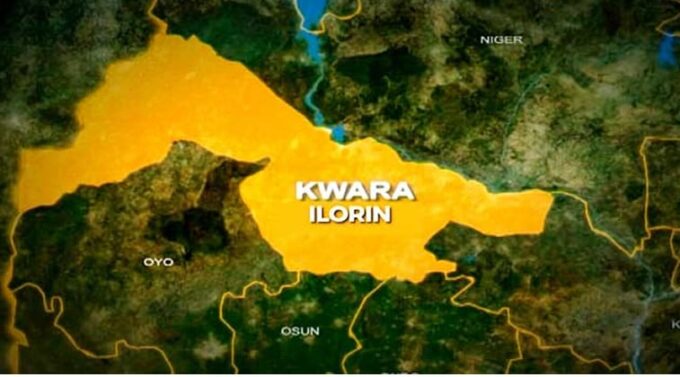By Chukwuma Umeorah
Nigeria’s oil and gas sector, the economic fulcrum of the nation, has been perennially bogged down by underinvestment, fluctuating output and managerial missteps.
To fix those, the federal enacted the PIA that has reformatted the sector, giving it regulatory direction and restoring investor confidence, which have reflected in enhanced production and local participation.
However, an investment masterstroke occurred in December 2024, when Seplat Energy PLC executed an $800 million acquisition of Mobil Producing Nigeria Unlimited (MPNU).
This audacious move has been applauded by experts as transformational for the company, the oil and gas industry and Nigeria’s economy.
The strategic deal, now operating as Seplat Energy Producing Nigeria Unlimited (SEPNU), doubled Seplat’s production to a pro-forma 118,000 barrels of oil equivalent per day (boepd) and increased its reserves by 85 per cent to 886 million barrels of oil equivalent and ultimately solidified its ambition to be Nigeria’s leading independent energy company.
With a record revenue of $1.116 billion, a laudable safety record of 11 million man-hours without a lost-time injury (LTI) and a bold push into gas and sustainability, analysts insist that Seplat’s big bet is not just reshaping its corporate trajectory but redefining Nigeria’s energy landscape.
Acquiring MPNU
The acquisition of MPNU, finalised on December 12, 2024, propelled Seplat from a primarily onshore operator to a dominant player with significant offshore capabilities. “The acquisition of the entire share capital of Mobil Producing Nigeria Unlimited (MPNU) significantly advances this ambition,” Seplat’s Chairman, Udoma Udo Udoma declared, even as he emphasised how the deal has created “a Nigerian energy powerhouse.”
The integration of SEPNU, has expanded Seplat’s portfolio to include world-class oil fields, three export terminals (Qua Iboe, Bonny River, and Yoho Floating Storage and Offloading facility), and two natural gas liquids (NGL) plants at East Area Project (EAP) and Oso.
This move has shifted Seplat’s production mix, with approximately 70 per cent now derived from offshore assets, enhancing revenue assurance through diversified export infrastructure in the Niger Delta.
The scale of the transformation is huge. Seplat’s pro-forma production reached 118,000 boepd, a significant leap from its legacy business’s 48,618 boepd, with SEPNU contributing an annualized 4,329 boepd in just 19 days of 2024.
Additionally, reserves grew by 85 per cent to 886 million barrels of oil equivalent, positioning Seplat as a leader in Nigeria’s oil and gas sector.
Seplat’s Chief Executive Officer, Roger Brown, highlighted the significance stating that “The increased reserves and production that the SEPNU’s assets add to the company’s energy’s operations is significant, making us consolidate on our position as the leader.”
“This acquisition aligns with Seplat’s long-standing goal, to establish and consolidate its position as “Nigeria’s leading independent energy company”. The $800 million cash consideration was funded entirely through cash and new debt facilities, avoiding shareholder dilution which served as a testament to Seplat’s strong balance sheet.
Analysts notes that this financial prudence as demonstrated by Seplat’s ability to finance the deal without equity issuance strengthened investor confidence attributing the stable share price on the Nigerian Exchange (NGX) and London Stock Exchange (LSE). The company’s focus on integration is equally strategic, with the establishment of an Integration Management Office (IMO) to unify Seplat and SEPNU’s teams, cultures, and visions.
This will help ensure that the acquisition’s benefits are sustainable, with plans to outline a comprehensive operational strategy at a Capital Markets Day in Q3 2025.
The wider implications for Nigeria’s energy sector are profound. By taking control of critical infrastructure like the Qua Iboe Terminal, Seplat enhances export reliability. Reports highlight that Seplat’s expanded asset base strengthens Nigeria’s position in global oil markets, particularly as OPEC production cuts stabilise prices. The acquisition also positions the company to capitalize on Nigeria’s push for increased local content under the Petroleum Industry Act (PIA), with 99 per cent of its contracts awarded to Nigerian firms, many from operational areas.
Boost in production, reserves and export capacity
Seplat’s operational success in 2024 highlighted its ability to execute complex projects while maintaining an unwavering commitment to safety. The Chairman, Udoma, during the company’s 12th Annual General Meeting (AGM) revealed that the company achieved an extraordinary 11 million man-hours without a lost-time injury (LTI) across its operations, including the mechanically completed ANOH Gas Plant.
“The company operates at 11 million man hours without any loss in due time. So it’s not just that we performed well, we performed safely,” Udoma said noting that this safety record is particularly impressive given the integration of SEPNU’s shallow water assets, which introduced new operational complexities.
Production figures further illustrate Seplat’s operational stability. In 2024, the company delivered 52,947 boepd, an 11 per cent increase over 2023, surpassing its guidance of 46,000–52,000 boepd. The legacy business contributed 48,618 boepd, bolstered by new wells from the 2024 drilling campaign, the Sapele Integrated Gas Plant (SIGP), and improved efficiency at the Trans Niger Pipeline.
SEPNU’s 19-day contribution added an annualized 4,329 boepd, setting the stage for 2025’s ambitious guidance of 120,000–140,000 boepd, with Q1 2025 already reporting 131,561 boepd.
Seplat’s Chief Operating Officer (COO), Samson Ezugworie, emphasised a cautious yet strategic approach to scaling up. “We have started safely and cautiously to restore those idle wells. we have a program now that we have clearly cut out to restore all the idle wells, starting with the easy and safe to restore conduits.”
While the acquisition presents significant opportunities, some experts argue that Seplat may face challenges as reviving over 400 idle wells required substantial investment and technical expertise. However, they note that this strategy could significantly boost Nigeria’s oil output amid global demand recovery.
Ezugworie noted that the company’s investment in asset integrity ensures that restored wells remain productive, addressing past industry challenges where reactivated wells often failed.
Operational efficiency and safety performance
Seplat’s financial performance in 2024 reflects its ability to balance transformative growth with shareholder rewards. The company reported a record revenue of $1.116 billion (N1.652 trillion), driven by higher production and the 19-day consolidation of SEPNU assets, despite modestly lower oil price realizations.
Adjusted EBITDA reached $539 million, a 20.3 per cent increase from 2023, with SEPNU contributing $99 million. The Company’s Chief Financial Officer,Eleanor Adaralegbe noted, “2024 was a strong year for the company because in addition to the strong oil and gas production from our onshore business we completed the transformational acquisition of MPNU.”
Despite a net debt increase to $898 million post-acquisition, Seplat maintained a stable pro-forma net leverage ratio of 0.7 times, demonstrating financial discipline. The company’s successful refinancing of a $650 million bond in March 2025, at a yield below Nigeria’s sovereign bond, was a historic achievement, as Adaralegbe highlighted: “Our yield priced inside the comparable Nigerian Government Sovereign bond, a first for Seplat.”
This has also sparked a growing investor confidence in Seplat’s creditworthiness, further bolstered by credit rating upgrades from Fitch (B, stable) and reaffirmations from S&P (B, stable) and Moody’s (Caa1, positive) in early 2025,” the company revealed in a statement.
Seplat’s commitment to shareholders is evident in its dividend policy. The board approved a core dividend of $3.6 cents per share for Q4 2024, bringing the total core dividend to $13.2 cents per share, a 10 per cent increase from 2023. Additionally, a special dividend of $3.3 cents per share was declared, resulting in a total 2024 dividend of $16.5 cents per share. Adaralegbe explained, “The payment of the special dividend reflects the Board’s continued confidence in the outlook for the Company and is underpinned by a strong balance sheet.”
The dividend strategy has made Seplat a favorite among investors on the NGX, with its share price outperforming the NGX Oil & Gas Index in Q1 2025.
Gas expansion and sustainability drive
The headline’s promise of reshaping Nigeria’s energy map is vividly realized in Seplat’s leadership in the gas sector and its commitment to sustainability. The company achieved a 128 per cent in gas production in 2024, driven by the Sapele Integrated Gas Plant (SIGP) and Oben facility improvements, positioning it as “one of the biggest gas producers in the country.”
Seplat’s onshore gas processing capacity is approximately 850 million standard cubic feet per day (MMscfd), with offshore facilities at Oso (600 MMscfd) and EAP (1 BCF/day) contributing to a total capacity of nearly 2.5 BCF/day. This expansion aligns with Nigeria’s push to leverage gas for domestic and industrial use, as well as exports.
The ANOH Gas Plant, a joint-venture project, is a cornerstone of Seplat’s gas strategy. It achieved mechanical completion on December 29, 2023, without an LTI across 11 million man-hours, and is ready for commissioning once the OB3 pipeline’s river crossing is completed in Q2 2025.
Ezugworie noted, “This is a top priority for the government, and we monitor progress on a continuous basis as a key pipeline infrastructure which is critical to the commencement of full operations of the 300 MMscfd joint-venture-operated ANOH Gas Plant.” Seplat is also exploring export opportunities, including sending gas to Nigeria LNG (NLNG
Sustainability is equally central to Seplat’s vision of “transforming lives through energy.” The company exceeds the PIA’s requirement to allocate 3 per cent of operating expenditure (OPEX) to host community trusts, with 99 per cent of contracts awarded to Nigerian firms.
Internally, Seplat’s SF-InPACT culture framework (Seplat First, Inclusivity & Respect, Performance-driven, Agility, Confidentiality and Trust) has improved employee engagement scores, supporting a diverse workforce that grew to 1,400 post-acquisition.
The company’s integrated reporting, now in its second year, underscores its commitment to environmental care and governance, with plans to explore renewable energy opportunities in its New Energy division.
Target
Seplat’s integration of SEPNU’s 1,000 skilled staff marks the beginning of a new chapter. “A new integration project has been launched following the successful coming together of Seplat and SEPNU. The integration process aims to enhance our capabilities, drive sustained growth, and maximize the potential of our combined strengths,” the company stated.
The unified vision is critical as Seplat prepares for its Capital Markets Day in Q3 2025, where it will outline a comprehensive strategy for the enlarged group (Document
“We believe the future is very bright for the newly enlarged Seplat Energy group,” Udoma affirmed. He added that the company’s focus on long-term sustainability extends beyond operations to social and environmental impact. “We focus on environmental care and reporting. And ultimately, we focus on maximizing returns to all our stakeholders”
Beyond the oil aspect of the business, Seplat’s social initiatives, such as solar energy installations in schools and hospitals, and entrepreneurial programs fostering small businesses, demonstrate a commitment to shared prosperity. A February report noted that Seplat’s community investments, particularly in Akwa Ibom post-SEPNU acquisition, are setting a benchmark for corporate social responsibility in Nigeria’s oil sector.
Challenges ahead
Looking ahead, Seplat faces challenges, including the OB3 pipeline’s delayed completion, which has pushed the ANOH Gas Plant’s full operations to H2 2025. However, its proactive monitoring and diversified gas strategy, leveraging both onshore and offshore assets may mitigate these risks. The company’s ability to navigate Nigeria’s volatile oil market, as noted in its prediction of softening oil prices further underscores its resilience. This is even as it is projected that Seplat’s gas investments could position Nigeria as a key LNG supplier by 2030.


















Leave a comment